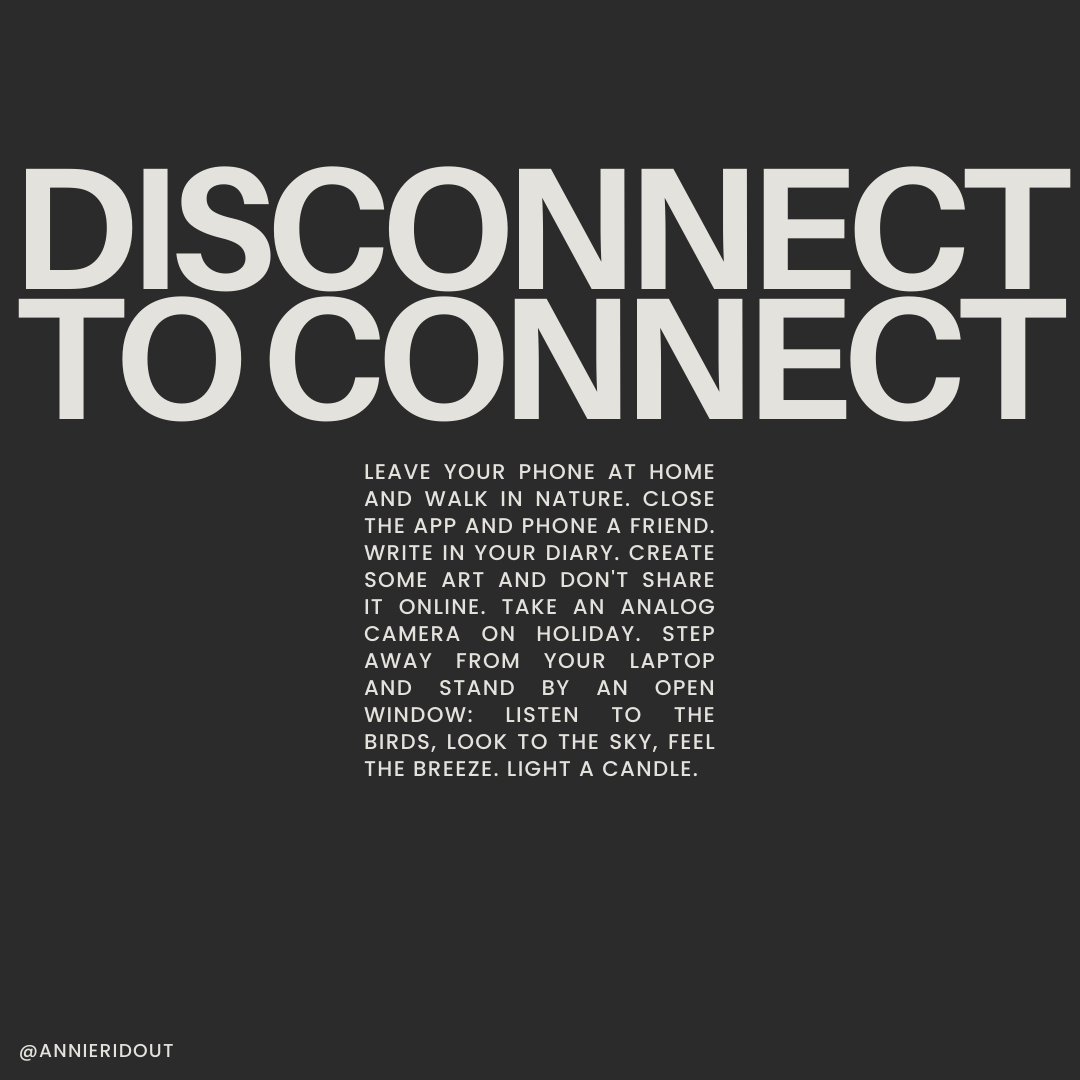Read this. And then put your phone away
If you're sick of automatically reaching for your phone and dipping into apps mindlessly, here's how to do things differently...
When one of my lovely readers asked me a while back to write a piece on reducing screen-time and social media use, I said I’d do it.
But then I didn’t.
Because I was addicted, too, and needed to find a way out myself before I could share tips with anyone else.
I’ve been through stages, in the past, of leaving my phone in another room at night, never taking…
Keep reading with a 7-day free trial
Subscribe to Annie Ridout to keep reading this post and get 7 days of free access to the full post archives.





